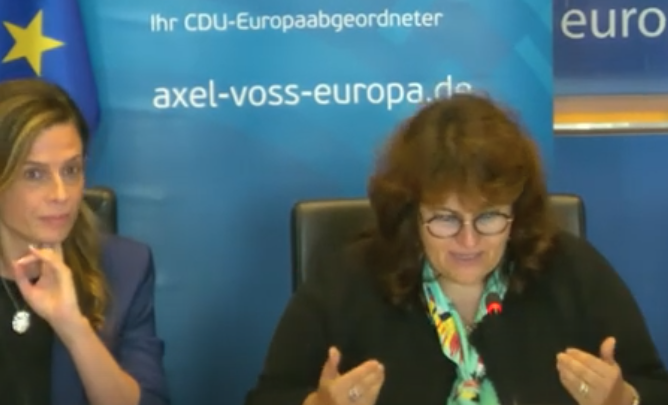Towards European Digital Independence
Congratulations to Alexandra Geese, Francesca Bria and Cristina Caffarra for organising a timely and interesting conference at the European Parliament on the idea of a “#EuroStack” (building on existing “stacks”/digital public infrastructure created by India and Brazil). You can watch the whole 5-hour event; I made a few notes (below) as I watched the middle half. The second half of the programme has more concrete discussion from engineers and experts from countries (also Taiwan) already working on their own “stacks”.
It was fascinating to hear ARM co-founder Hermann Hauser speak, but his arguments have become very mainstream economics (see e.g. the recent Draghi report) and not I’d argue especially relevant to notions of a European version of the “India stack”… 🤔 He also ended up parroting the usual industry blandishments about AI — “the most impactful technology in history” (really?) which will have a “huge impact” on productivity (have you talked to Goldman Sachs, Daron Acemoglu etc. recently?)
Francesca Bria made an important counter-point: why are European prime ministers parroting industry talking points, rather than talking to the best European scientists about it? I’d add: let’s also be more realistic about the timeframe and impact of quantum computing than society has been with AI hysteria 🙄
Green MEP Alexandra Geese told the audience: “don’t let people tell you we can’t do this. I was elected in 2019 with lots of ideas, but people told us, it’s too late to regulate social networks, but way too early to regulate AI. We did both.” 😁 Left MEP Li Andersson added: We need a positive (non-dystopian) vision of what digital services and the Internet can look like. And we need interoperability (especially for social networking services) to let SMEs participate and give users genuine choice 🚀 Coincidentally, at the same time, Henry Farrell posted on one of those interoperable social networks on the geopolitics of stacks!
Finally, I enjoyed the tremendous four-minute overview from Marleen Stikker of how “public” stacks must embody public values, with mentions of Signal, Proton, Matrix and Fairphone 👏🏻 There were also interesting short presentations from Francesco Bonfiglio and Ignacio Llorente on 🇪🇺clouds. The latter is building tech to enable easier switching of workloads between different providers, which sounds great for customers — but perhaps will put a lot of downward price pressure on providers? 🤔
A huge issue for cloud competitors (in Europe or elsewhere) is overcoming the economies of scale (and potentially anticompetitive tactics) of the three “hyperscalers” which dominate the market — Amazon Web Services, Microsoft Azure, and (to a lesser extent) Google Cloud. None of them have (yet) been designated in the EU as Digital Markets Act “gatekeepers” 🧐
A European Commission official told the audience to watch what the Commissioners-designate say in their confirmation hearings in the next couple of months. To be continued!

irony is that the “stack” is mostly open source software and mostly (e.g. linux, internet stack, virtual machines, docker) code written in europe – there is literally no non-EU stack – the problem is not the software stack, it is the business that runs it.
what’s more, the chinese realized this and alibaba/tencent/huawei just “built” their own – the only difference between them and EU is that china was more protectionist and ruthless about having an internal market and _excluding_ the american tech giants…and the US didn’t dare properly retaliate – why doesn’t europe do that? 🙂
Haha. The less aggressive version is to use public procurement to this end, which was mentioned here and there and is a significant part of the cloud section of the Draghi report
yup – some UK gov cloud was done that way – but a long way to go….but also, cybersec & supply chain – we might wanna disconnect from US (or others) if there was a big cyberattack (e.g. putin pushing beyond ukraine) and we need localization of tech and expertise to make sure that all continues to work – good example of that was Estonia’s digital citizen stuff…
another problem with eu is that some countries still have national procurement captured by useless old incumbents like SAP (germany) and Thomson (france) instead of letting young blud take over (the fact that the GEC Marconi behemoth went broke in the UK in 1999 was actually a win for tech here in the longer run)